
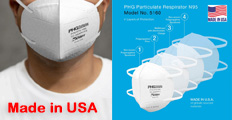
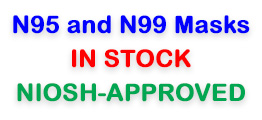
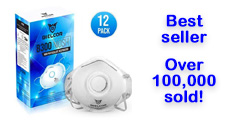
Find all of your laboratory and workplace safety supplies at Safety Emporium!
 RTECS |
 Glossary Index |
 Saline |
| MSDS Topics |
Free Sites | FAQ's | Regulations | Glossary | Software | Suppliers |
| Books | Forum | Poll | Fun stuff | Quiz | Store | |
| Understand your MSDS with the MS-Demystifier | Search ALL our MSDS info | |||||
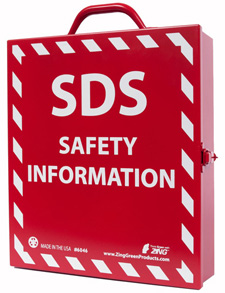
Your employees can stay informed and comply with OSHA regulations with SDS information stations and compliance products from Safety Emporium.
Prior to May 31, 2015, the European Union (EU) required that safety phrases (S-phrases) appear on each label and Safety Data Sheet for hazardous chemicals. S-phrases consisted of the letter S followed by a number. The precise meaning of each of these appears in the table below. These are now obsolete (see Additional Info).
Risk phrases (R-phrases) to denote the risks of the material were also part of the same requirements and are also obsolete.
S-phrases were used to specify special handling requirements of the material whereas the other label elements such as symbols or pictograms (see CHIP) only indicated broad classes of hazards.
While an improvement over simple pictograms, R- and S- phrases were still not specific enough, so they were phased out in favor of the much more comprehensive Hazard Statements and Precautionary Statements under the EU's implementation of the Globally Harmonized System of Classification and Labeling of Chemicals (GHS) per EU Regulation (EC) 1272/2008 (6.6 MB PDF file).
More than one S-phrase could appear on a label or SDS, and they could also appear in combination, such as S1/2 which corrsponds to "Keep locked up" and "keep out of reach of children". In the first table below, single phrases are given, and in the second table, combinations are given. In general, no more than four S-phrases were be sufficient to adequately communicate the safety precautions for a particular material.
| Single Safety Phrases | |
|---|---|
| S1 | Keep locked up. |
| S2 | Keep out of the reach of children. |
| S3 | Keep in a cool place. |
| S4 | Keep away from living quarters. |
| S5 | Keep contents under ... (appropriate liquid to be specified by the manufacturer). |
| S6 | Keep under ... (inert gas to be specified by the manufacturer). |
| S7 | Keep container tightly closed. |
| S8 | Keep container dry. |
| S9 | Keep container in a well-ventilated place. |
| S12 | Do not keep container sealed. |
| S13 | Keep away from food, drink and animal feeding stuffs. |
| S14 | Keep away from ... (incompatible materials to be indicated by the manufacturer). |
| S15 | Keep away from heat. |
| S16 | Keep away from sources of ignition - No smoking. |
| S17 | Keep away from combustible material. |
| S18 | Handle and open container with care. |
| S20 | When using do not eat or drink. |
| S21 | When using do not smoke. |
| S22 | Do not breathe dust . |
| S23 | Do not breathe gas/fumes/vapor/spray (appropriate wording to be specified by the manufacturer). |
| S24 | Avoid contact with skin. |
| S25 | Avoid contact with eyes. |
| S26 | In case of contact with eyes, rinse immediately with plenty of water and seek medical advice. |
| S27 | Take off immediately all contaminated clothing. |
| S28 | After contact with skin, wash immediately with plenty of ... (to be specified by the manufacturer). |
| S29 | Do not empty into drains. |
| S30 | Never add water to this product. |
| S33 | Take precautionary measures against static discharges. |
| S34 | Avoid shock and friction. No longer used. |
| S35 | This material and its container must be disposed of in a safe way. |
| S36 | Wear suitable protective clothing. |
| S37 | Wear suitable gloves. |
| S38 | In case of insufficient ventilation, wear suitable respiratory equipment. |
| S39 | Wear eye/face protection. |
| S40 | To clean the floor and all objects contaminated by this material, use ... (to be specified by the manufacturer). |
| S41 | In case of fire and/or explosion, do not breathe fumes. |
| S42 | During fumigation/spraying, wear suitable respiratory equipment (appropriate wording to be specified by the manufacturer). |
| S43 | In case of fire, use ... (indicate in the space the precise type of fire-fighting equipment. If water increases the risk, add - Never use water). |
| S44 | If you feel unwell, seek medical advice (show the label where possible). No longer used. |
| S45 | In case of accident or if you feel unwell, seek medical advice immediately (show the label where possible). |
| S46 | If swallowed, seek medical advice immediately and show this container or label. |
| S47 | Keep at temperature not exceeding ...°C (to be specified by the manufacturer). |
| S48 | Keep wetted with ... (appropriate material to be specified by the manufacturer). |
| S49 | Keep only in the original container. |
| S50 | Do not mix with ... (to be specified by the manufacturer). |
| S51 | Use only in well-ventilated areas. |
| S52 | Not recommended for interior use on large surface areas. |
| S53 | Avoid exposure - obtain special instructions before use. |
| S54 | Obtain the consent of pollution control authorities before discharging to wastewater treatment plants. No longer used. |
| S55 | Treat using the best available techniques before discharge into drains or the aquatic environment. No longer used. |
| S56 | Dispose of this material and its container at hazardous or special waste collection point. |
| S57 | Use appropriate container to avoid environmental contamination. |
| S58 | To be disposed of as hazardous waste. No longer used. |
| S59 | Refer to manufacturer/supplier for information on recovery/recycling. |
| S60 | This material and its container must be disposed of as hazardous waste. |
| S61 | Avoid release to the environment. Refer to special instructions/Safety data sheets. |
| S62 | If swallowed do not induce vomiting: seek medical advice immediately and show this container or label. |
| Multiple Safety Phrases | |
|---|---|
| S1/2 | Keep locked up and out of reach of children. |
| S3/7 | Keep container tightly closed in a cool place. |
| S3/9 | Keep in a cool, well-ventilated place. No longer used. |
| S3/7/9 | Keep container tightly closed in a cool, well-ventilated place. No longer used. |
| S3/9/14 | Keep in a cool, well-ventilated place away from ... (incompatible materials to be indicated by the manufacturer). |
| S3/9/49 | Keep only in the original container in a cool, well-ventilated place. |
| S3/9/14/49 | Keep only in the original container in a cool, well-ventilated place away from ... (incompatible materials to be indicated by the manufacturer). |
| S3/14 | Keep in a cool place away from ... (incompatible materials to be indicated by the manufacturer). |
| S7/8 | Keep container tightly closed and dry. |
| S7/9 | Keep container tightly closed and in a well-ventilated place. |
| S20/21 | When using do not eat, drink or smoke. |
| S24/25 | Avoid contact with skin and eyes. |
| S36/37 | Wear suitable protective clothing and gloves. |
| S36/39 | Wear suitable protective clothing and eye/face protection. |
| S37/39 | Wear suitable gloves and eye/face protection. |
| S36/37/39 | Wear suitable protective clothing, gloves and eye/face protection. |
| S47/49 | Keep only in the original container at temperature not exceeding ...°C (to be specified by the manufacturer). |
| S3/7 | Keep container tightly closed in a cool place. |
| S7/47 | Keep container tightly closed and at a temperature not exceeding ...°C (to be specified by the manufacturer). |
| S29/56 | Do not empty into drains, dispose of this material and its container at hazardous or special waste collection point. |
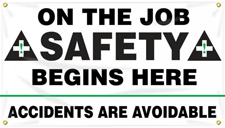
Encourage workplace safety culture with safety banners from Safety Emporium.
Safety phrases were never required on labels or Safety Data Sheet by U.S. OSHA, however, they were required in the European Community. As safety phrases were formally phased out in 2015, they are generally only seen on older (and obsolete) SDS's. If your current sheet has R- and S-phrases instead of H-statements you should contact the manufacturer to get an updated sheet.
Remember that safety phrases only indicated the safety precautions that you need to follow. For information about the risks see the risk phrases entry.
See also: ANSI, CHIP, Precautionary Statements, risk phrases and the International Section of the MSDS FAQ.
Additional definitions from Google and OneLook.
Entry last updated: Sunday, January 15, 2023. This page is copyright 2000-2025 by ILPI. Unauthorized duplication or posting on other web sites is expressly prohibited. Send suggestions, comments, and new entry desires (include the URL if applicable) to us by email.
Disclaimer: The information contained herein is believed to be true and accurate, however ILPI makes no guarantees concerning the veracity of any statement. Use of any information on this page is at the reader's own risk. ILPI strongly encourages the reader to consult the appropriate local, state and federal agencies concerning the matters discussed herein.